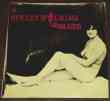- Various Artists
-
 Street
Walking Blues
Street
Walking Blues
- Hustlin' Woman Blues - Memphis Minnie Time: 2:13
- Good Time Flat Blues - Maggie Jones Time: 2:26
- I've Got What It Takes - Virigina Liston Time: 2:31
- New Shave 'em Dry - Lil Johnson Time: 2:23
- She Skuffles That Ruff - Sam Theard Time: 2:17
- I'm In The Racket - Billie Pierce Time: 2:33
- Street Walkin' Blues - C. Williams Time: 2:13
- Crowin' Rooster Blues - Lonnie Johnson Time: 2:03
- Walking The Street - Georgia White Time: 1:56
- Hustlin' Blues - Ma Rainey Time: 2:01
- Kitchen Mechanic Blues - Clara Smith Time: 2:35
- Must Get Mine In Front - Irene Scruggs Time: 1:55
- Street Walker Blue - Bertha Chippie Hill Time: 2:56
- Shave 'em Dry - Lucille Bogan Time: 2:37
-
ST-117
SIDE A
- HUSTLIN' WOMAN BLUES Memphis Minnie
1924
Memphis Minnie, guitar and vocals, Black Bob, piano, Casey Bill Weldon, steel guitar, Bill Settles, bass - GOOD TIME FLAT BLUES Maggie Jones
1924
Louis Armstrong, cnt, Fletcher Henderson, piano - I'VE GOT WHAT IT TAKES Virginia Liston
1929
Clarence William's Washboard Band Clarence Williams, piano, Charlies Gaines, t. Unknown cl, Floyd Casey, wb - NEW SHAVE 'EM DRY Lil Johnson
1936
Mr. Sheiks (Alfred Bell) trumpet. Black Bob, piano. Big Bill, guitar. Unknown
bass - SHE SKUFFLES THAT RUFF Sam Theard
1929
acc. unknown - I'M IN THE RACKET Billie Pierce 1956
- STREET WALKIN' BLUES C.Williams
1935
Washboard Rhythm Boys acc. unknown
SIDE B
- CROWIN' ROOSTER BLUES Lonnie Johnson
1941
Lonnie Johnson, guitar and vocals, Lil Armstrong, piano, Andrew Harris, bass - WALKING THE STREET Georgia White
1937
Richard M. Jones, piano, Ikey Robinson, guitar, John Lindsey, bass - HUSTLIN' BLUES Ma Rainey
1928
acc. her Tub Jug Washboard Band — Tampa Red, kazoo, Georgia Tom Dorsey, piano, balance unknown - KITCHEN MECHANIC BLUES Clara Smith
1925
Bob Fuller, reeds, Stanley Miller, piano. Buddy Christian, banjo - MUST GET MINE IN FRONT Irene Scruggs
1930
Little Brother Montgomery, piano - STREET WALKER BLUES Bertha "Chippie" Hill
1926
acc. by Richard M. Jones' Jazz Wizards — Shirley Clay, cnt, Preston Jackson, trombone, Artie Starks, clt/alto, Richard M. Jones, piano, vocals, Johnny St. Cyr, banjo - SHAVE 'EM DRY Lucille Bogan
1935
Walter Roland, piano
Like Pretty Baby, the recent film based on Ernest Bellocq's photo- graphs in the now legendary quarter of New Orleans called Storyville, the cuts on this anthology offer a slice-of-life-in-the-brothels at the turn of the century. The lyrics herein, frequently heard in 1900's dancehalls and cabarets as well as the whorehouses to which they are indigenous, are not only part of the music used for the promotion of the goods and services available in the Louisiana sex establishments but are, more significantly, the recording of working women's wails and woes not frequently exhibited to the general public. The very directness and coarseness of the songs is the source of their historical censorship: they were all too often judged too explicit to be transcribed for publication, being, as they are, a very special oral/aural pornography.
The fact that the blues are quintessentially a female musical form, expressing always sexual acts and sexual longings, has played a part in the historical burial and current disinterment of the music of especially oppressed women, streetwalkers. While on the surface it appears to have been one of the few forms of economic emancipation available to women at that time, hooking was not truly a form of self employment: as the words of this album convey, the pimp is always as essential a part of her economy as is the john. The streetwalker's blues are therefore more pointed, more poignant, more perfect in their expressions of pain and desire than the blues of women in the larger culture, than the blues of the historical battles of the sexes. The practitioners of the ancient art and career are wry and mordant by turns, direct and allusive as circumstances warrant; they are raunchy, savvy, tough, and sassy, candid as Bellocq has portrayed them with his camera. Erotic ("Grind me, baby/grind me till I cry"), cynical ("You know I'm in the racket/Yo' mama's in the racket now"), provocative ("I'll let you look at my bankbook/But I'll never let you feel my purse") and celebratory ("She's up in the morning/Long, full day/Out in the street/Hollerin' hey hey hey"), the cunttales are told over whorehouse pianos by women who are aware that they are at once the sellers ("I got what you should get") and the sold ("I'm just a working girl" and "If you ain't got a dollar/give me a lousy dime") in the sex industry ("Work sixteen hours a day/We've got to get together/Some- thing's got to be done/We make the money/While the pimps really have the fun").
The women who sing, "My feets are blistered/from walking these lonesome streets" are central to this album, a torn up loveletter to the world. Sexy, lamenting, up-front, winning, these blues tell us truly that one woman's vice is another's nicety.
Shelley Neiderbach
Associate Professor, Women's Studies
Jersey City State College
Producer: Bernard Brightman
Engineering & Transfers: Jerry Valburn and Jack Towers
Art and Design Work: Naum Kazhdan
Typography: Madeline Sloan
Cover photo: Ernest Bellocq - Storyville crib prostitute
References used for this album were: Phil Morrell, The Jazz Museum, Key Largo; Storyville, New Orleans by Al Rose; Blues and Gospel Records, Goodrich, Dixon; Blues Fell This Morning, Paul Oliver; Tell Your Story, Eric Townly
Send a self-addressed envelope for a free catalog of other Stash releases to:
STASH RECORDS, INC.
P. O. Box 390, Brooklyn, N.Y. 11215
STASH RECORDS ARE PLAYABLE ON BOTH STEREO AND MONO-EQUIPMENT, NO PSEUDO OR ELECTRONIC RECHANNELING HAS BEEN ADDED.